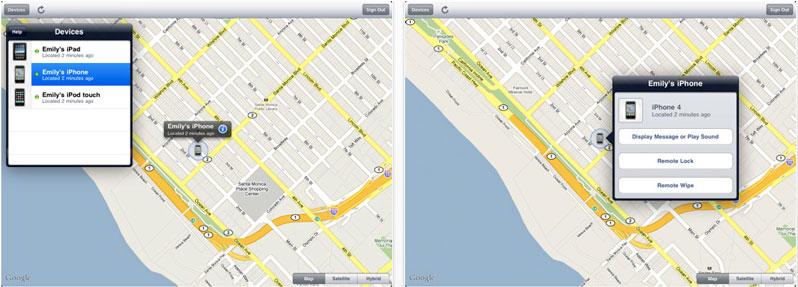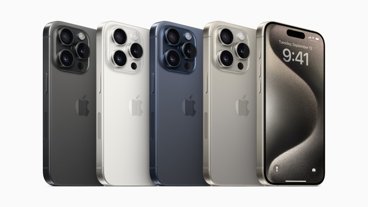New FCC, carrier database of stolen cellphones aims to reduce iPhone theft
The four largest carriers in the U.S. have all agreed to participate in the new database, The Wall Street Journal reported on Monday. Verizon and Sprint already block stolen phones from being reactivated, while AT&T and T-Mobile do not.
Wireless operators will maintain the database and prevent phones listed as stolen from activating voice or data service. The efforts are intended to serve as a deterrent to potential criminals by reducing the resale value of stolen devices. iPads and other tablets with cellular networking technology will also be added to the database.
"We wanted to find a way to reduce the value of stolen smartphones," said FCC chairman Julius Genachowski.
The specifics of the database are still under discussion, but a "broad outline" has been agreed upon, the Journal noted. The unique serial numbers of devices would be used to keep track of stolen phones. Wireless operators have also agreed to promote the use of device passcodes to reduce theft.
Carriers plan to create their own databases in the next six months and integrate them over the course of 12 months. A person familiar with the initiative told the publication that regional carriers will likely join the database within the next two years.
With high-value smartphones becoming commonplace among conusmers, law-enforcement officials have become increasingly vocal about cellphone theft in recent years. Cellphone-related robberies in Washington D.C. have increased 54 percent since 2007, the year the original iPhone was released. An internal New York Police Department document reportedly indicated that 81 percent of the 26,000 electronics theft incidents that took place during the first 10 months of 2011 involved mobile phones.
According to the report, the Major Cities Chiefs Association, which represents 70 police chiefs from large U.S. and Canadian cities, called on the FCC to put pressure on carriers to disable stolen phones.
Police have even resorted to sting operations to crack down on vendors purchasing stolen devices. An NYPD sting last December that offered "stolen" Apple devices to local merchants netted 141 arrests.
Database strategies in the U.K. and Australia appear to have reduced theft in those countries. The number of cellphone-related crimes in London stood at 8,000 per month last fiscal year, down from 10,000 per month in 2004, even as the number of handsets almost doubled over the period.
For its part, Apple has also worked to build theft deterrents into its devices. In 2009, the company launched a Find My iPhone service that helps users track, lock and wipe devices that have been lost or stolen. Also in 2009, a patent application surfaced for an "acceleration-based theft detection system" that would sound an alarm if an accelerometer picked up fast movement of the device that was likely to be a theft.
 Josh Ong
Josh Ong











 Malcolm Owen
Malcolm Owen
 Chip Loder
Chip Loder

 William Gallagher
William Gallagher
 Christine McKee
Christine McKee
 Michael Stroup
Michael Stroup
 William Gallagher and Mike Wuerthele
William Gallagher and Mike Wuerthele







